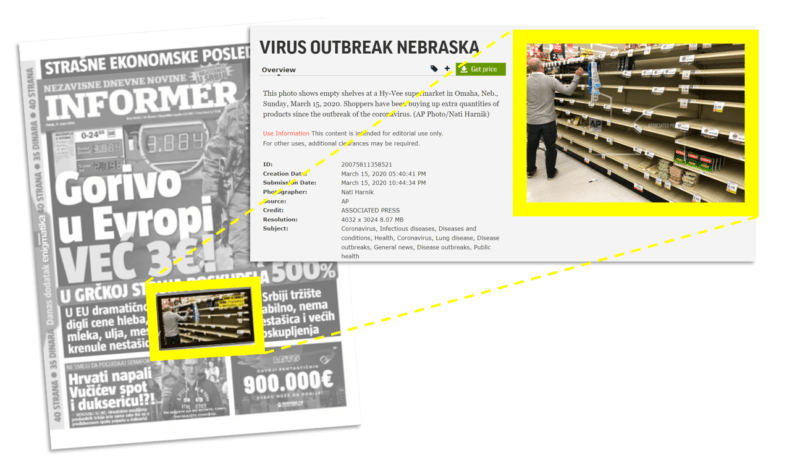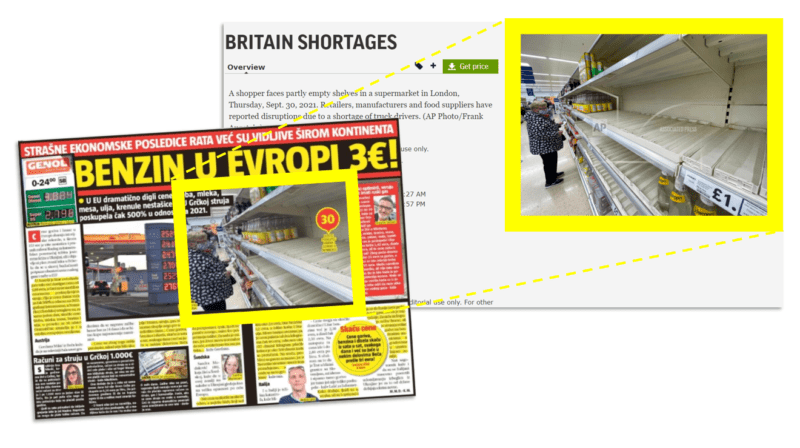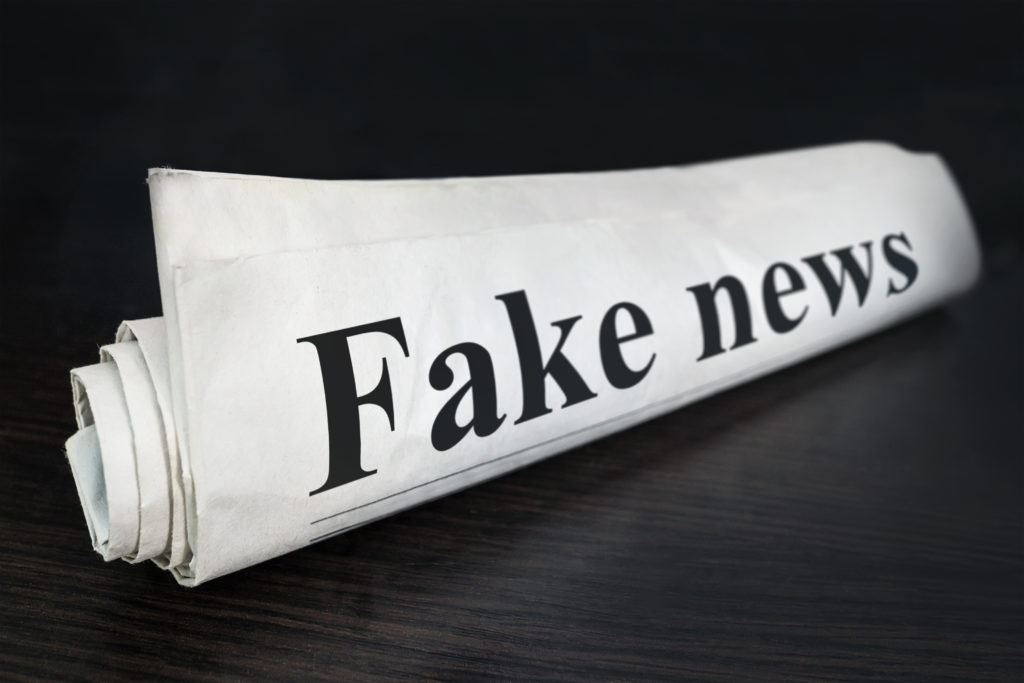Original article (in Serbian) was published on 11/03/2022
“The strong economic consequences of the war are already visible across the continent”, claims today’s print edition of Informer. On the front page of this paper, it is announced that “shortages of essential food items are evident in the EU”, while “the market in Serbia is stable, there are no shortages and major price increases”.
The whole text is based on the statements of our people from the diaspora who presented to Informer the current situation in the countries where they live. Although it is true that food prices in Europe and the world are rising, the photos that Informer tried to use to illustrate food shortages in German markets are not current, nor do they come from Germany.
On its front page, Informer published a photo, placed between the claims “dramatically increased prices of bread, milk, oil, meat in the EU, shortages are evident” and “the market in Serbia is stable, there are no shortages and higher prices”. The same photo also contains a description with the following content: “just like in Serbia in 1993. A shop in Germany, yesterday”. However, this photo was not taken in Germany, nor yesterday. It is a photograph taken by the Associated Press’ photographer Nati Harnik, and it was taken in March 2020 at the Hy-wee supermarket in Omaha, Nebraska.

Within the text about price increases and shortages in Europe, Informer tried to illustrate Germany’s empty shelves. This time, it used a photograph taken in October 2021 in Great Britain, which was taken by another Associated Press’ photographer, Frank Augstein. The original photo even shows the price in pounds, which clearly shows that it was not taken in a German supermarket.

Right next to the text on the dramatic rise in prices of food and groceries in Europe, Informer published an article entitled “There are no shortages or higher prices in Serbia”, although we are witnessing inflation due to which the prices of essential food items were frozen in December. The same goes for fuel prices, which, due to the rising prices of petroleum products worldwide, are frozen until April 11.

